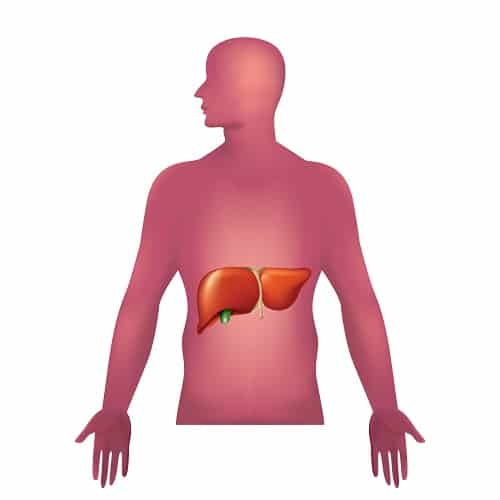America has seen a rapid rise in opioid and opiate use, whether it is with prescription or illicit drugs, especially IV drugs. Over 4.2 million people have reported using heroin at least once in their lifetime, and over 2 million Americans have used and abused prescription opioids. The opioid and opiate epidemic in America has yielded many unexpected consequences. Drug use often damages multiple organs in the body. In particular, IV opioid use has caused a sharp increase in Hepatitis C (HCV) incidences. This is due to the fact that opioid users often inject the drugs intravenously for a more pronounced high. Intravenous drugs will have a faster and stronger effect. Most drug users are not picky about the drug needles that they use. Many even share needles with one another to get their next fix when shooting up intravenous drugs. Hepc is a blood-borne illness that is highly contagious. If infected IV users share needles with one another during a drug injection, Hep C spreads. From 2004 to 2014, twice as many Americans have been infected with Hepatitis C. Studies show that admissions due to heroin or prescription opioid injections caused a 4-fold increase in Hep C admission rates.
“Get your loved one the help they need. Our substance use disorder program accepts many health insurance plans, this is our residential program.”
What Is Hep C?
Hepatitis C is an inflammation of the liver caused by a virus. As the disease progresses, it worsens and can lead to cirrhosis, liver cancer, and liver failure. Hepatitis can cause severe liver damage, if not treated properly. There are three different viruses that can cause Hepatitis diseases, which include Hep A, B, and C. It’s possible to get all 3. While there are Hep C vaccines that can prevent Hep A and B, there are none for Hep C. While all Hep diseases are contagious, Hep C specifically targets the liver. It’s usually spread through contact with blood from an infected individual. IV opioid drug users often share needles, which is why they often get transmitted the disease. Hepc first starts off as an acute disease. In this stage, the disease is not very dangerous. Unfortunately, after 6 months of no treatment, the disease advances into the chronic stage. This disease is often a long-term illness, and the infection may last a lifetime.
How Hep C Affects the Liver
Once the virus enters the bloodstream, it will travel to the liver. There, it will infect liver cells known as hepatocytes. Once a certain threshold of hepatocytes is infected, the immune system will start to respond to the proteins that are created by the virus. In actuality, the virus doesn’t damage the liver. It is the immune system’s response that damages the liver. The immune system tries to clear the virus from its system but ends up damaging the liver cells instead.
Hepatitis C symptoms
Many individuals who have hep c don’t even realize that they’re sick because they have no Hep C symptoms, especially when they’re first infected. Acute Hepatitis C virus infections often go undiagnosed. Hepatitis C symptoms, if they ever appear, will start to emerge after 6 to 7 weeks after initial exposure to the virus. However, there have been reports of hep c symptoms kicking in as soon as 2 weeks, and as late as 6 months after exposure. The most common Hepatitis C symptoms include:
- Belly pain
- Dark urine
- Fatigue
- Itchy skin
- Jaundice
- Joint pain
- Sore muscles
Out of all the Hep C symptoms, jaundice is the only symptom that usually only appears once all other symptoms disappear. Jaundice involves the yellowing of the skin and eyes. It’s not unusual for many individuals to never develop any hepc symptoms at all. When this happens, chronic Hepatitis C develops. Some individuals may have Chronic Hep C for over 15 years without ever getting diagnosed, since they have no Hepatitis C symptoms.
How Is Hepatitis C Transmitted?
The main question on many people’s mind is ‘how do you get hep c?’ Unlike Hep A, which can be contracted from sharing food, Hep C is only transmitted through infected blood. If there’s no blood involved, there’s no risk of infection. This means that you can’t contract the disease from casual contact, like hugging, sharing food, kissing or sneezing. The most common ways that Hep C is transmitted from individual to individual is by blood. Common Hep C causes include:
- Getting a blood transfusion or organ transplant before 1992. Before 1992, donated blood and organs were not screened for Hepatitis C. As many infected individuals may not get any Hep C symptoms, many may still not know that they have this disease.
- Getting shot with a needle that contains infected blood when getting flu shots and other vaccines. Fortunately, this only happens in developing countries and does not apply to America.
- Getting a tattoo or a piercing with a needle that infected blood on it. This may happen if you go to an unlicensed tattoo artist or if your tattoo artist does not properly clean his or her equipment.
- Sharing drug needles and other equipment used to inject illicit drugs. This, in fact, the most common way that Americans contract Hepatitis C, and IV users have the highest rate of Hep C contraction. Heroin users often share drug needles with one another from shooting up the drug. You’ll notice track marks on their arms and legs.
There’s also a risk of contracting Hepatitis C from sexual contact; however, this is not common. The risk of contracting the disease is higher for those who have many sex partners. There have also been cases where healthcare workers contract the disease upon accidentally getting pricked by infected drug needles. Mothers may also spread the virus to babies during childbirth.
Risk of Hepc Contraction from Needlestick
Even getting pricked by an infected needle can result in Hep C contraction. Studies have shown that there’s up to a 7.3% chance of contracting Hep C from getting pricked by an infected needle. This means that even healthcare workers need to be cautious. IV opioid users are much more likely to come across an infected drug needle. Opiates, like heroin, often are intravenous drugs. It’s also important to note that transmission can only happen if an individual gets pricked by hollow-bore needles. There are no reported seroconversions from getting pricked or injured by solid sharp objects.
Avoid Contracting Hep C from IV Opioid Use
Intravenous drug users have a high risk of becoming infected with Hepatitis C from sharing needles. The best way to avoid contracting this disease is to:
- Avoid sharing needles. It’s best to use new needles at all times. At the very least, never use needles that others have used. Only use needles that only you have touched.
- Avoid direct exposure to blood. It’s not unusual for drug users to come across the blood. Never come in direct contact with any blood. Treat all blood as if it’s infected.
It’s also a good idea to avoid sharing personal care items. These tips are great for avoiding contracting not only hepc, but also other types of blood-borne illnesses, like HIV. They effectively prevent transmission.
“We treat both addiction and co-occurring disorders and accept many health insurance plans. Take a look at our inpatient program.”
How to Test for Hep C
If you’ve ever shared needles with other opioid drug users, you’re at risk for contracting hepc thanks to intravenous drugs. Transmission can happen with just a single drug injection. Since this disease often has no symptoms, it’s a good idea to get tested. Don’t let this disease manifest into something worse. There are several different types of tests that can screen for the virus. These tests include the HCV antibody test, the viral load test, and the genotype test. In rare cases, the doctors may even perform a liver biopsy to see the condition of your liver. This doesn’t happen often.
HCV Antibody Test
The first test that most doctors recommend is the HCV antibody test. This test looks for antibodies that are created by the virus. Once the virus enters your system, it will usually produce enough antibodies for detection within 2 to 3 months. Those who have an acute infection may not produce enough antibodies for detection. Those who test positive for HCV antibodies may merely have been exposed to the virus in the past. It’s possible for the body to clear the virus on its own. In fact, this happens with 1 out of 4 people who contract the disease. This means that you might not have the disease any longer even if you test positive for the antibodies.
Viral Load Test
If the HCV antibody test comes back positive, your doctor might follow up with a viral load test. This test looks at whether you have been merely exposed to the virus or have actually contracted it. The viral load test will test to see whether there’s any virus present in your bloodstream. This test looks for RNA produced by the virus. There are different methods available for detecting RNA. Popular methods include transcription-mediated amplification (TMA), polymerase chain reaction (PCR) and branched DNA (bDNA). In general, qualitative viral load testing is recommended over quantitative testing. It yields results that are more precise and accurate. This test is also used during treatment to see how well the Hepatitis C vaccines are working.
Genotype Test
If the viral load test comes back positive, then a genotype test is usually done to determine the strain of hep C that you’re infected with. This test looks at the genetic structure and makeup of the virus. There are seven different strains of the Hepatitis C virus. It’s important to determine the strain that you have because this will affect the type of treatment you should get. Some treatments are much more effective at dealing with certain strains than others. The genotype of the virus will also give the doctor more insight into how likely the cure will be effective. Not all strains can be completely eradicated from the body. Some are lifelong diseases that can only be managed, as there is no cure. The most common strain is genotype 1. Hepatitis C genotype 1 accounts for 70% to 75% of all HCV infections in America. Due to this reason, there’s a lot of data for this strain. Most Hep C vaccines are also designed to treat this viral strain. Other strains may be more difficult to treat.
Treatment for Hepatitis C
Those who are diagnosed with Hepatitis C can cure the disease by taking antiviral medicines. Depending on the strain of the virus, different Hep C treatments will be recommended. The vaccines need to be taken for anywhere from 12 weeks to a year to help the body clear itself of the virus. Until several years ago, there were only several hep c vaccines to choose from: pegylated interferon (Peg-IFN) and ribavirin (RBV). These medications were the only Hep C cure available at the time. Peg-IFN is most highly recommended for genotype 3 of the virus and comes in the form of an injection. Unfortunately, it can cause some significant side effects, and may not be the most ideal Hep C cure. RBV is taken orally and is never used alone to treat the viral infection. It is often used in combination with other medications and treatments. Over the years, more and more options have popped up. Other types of Hep C cures and vaccines include:
- Boceprevir and telaprevir, which attack the Hepatitis C virus directly. These drugs are known as direct-acting antivirals (DAAs), and often used to treat Hep C genotype 1.
- Simeprevir, which is an oral regimen for Hepatitis C genotype 1. This is a once-daily protease inhibitor.
- Ledipasvir combined with sofosbuvir, which is a pill that is taken daily. These medications are also DAAs, and they work by interfering with the enzymes that the virus needs to replicate. This medication has a prescription length of 12 weeks and is used to treat Hep C genotype 1. It has cured 94% of patients who have taken it.
- Elbasvir combined with grazoprevir in a tablet form. This medication is used to treat strains 1 and 5 and prescribed for a 16-week course.
- Sofosbuvir combined with velpatasvir, which is a once-daily pill used to treat all HCV genotypes. It has a high-efficiency rate.
During treatment, the viral load within your body will be constantly measured. This is to determine whether the medications prescribed are effective or not. If your body is not reacting positively to the medication, your doctor may want to switch you to another alternative. Some of these medications will react negatively with other drugs. If you are using medical detoxification to get sober, make sure that the drugs you are taking won’t react adversely to one another.
“We accept many health insurance plans. Get your life back in order, take a look at our residential program.”
Protect and Appreciate Your Body
Drug use will damage your body. The longer the drug use, the more damage your body sustains. Protect your body and appreciate your health by getting sober. Our opioid rehab and detox programs can also accommodate Hep C treatments. If you’re currently addicted to any drugs, learn more about how your drug of choice can affect your body. Speak to one of our counselors today. Not only can we provide you with the information you need, but we can help you on your road to recovery. With counseling, therapy and various medical treatments, you’ll successfully become sober in no time. Hopefully, your addiction has not caused any permanent damage to your body yet, and it’ll be able to heal with time. Once you’ve gotten sober, remember to appreciate and cherish your body.




